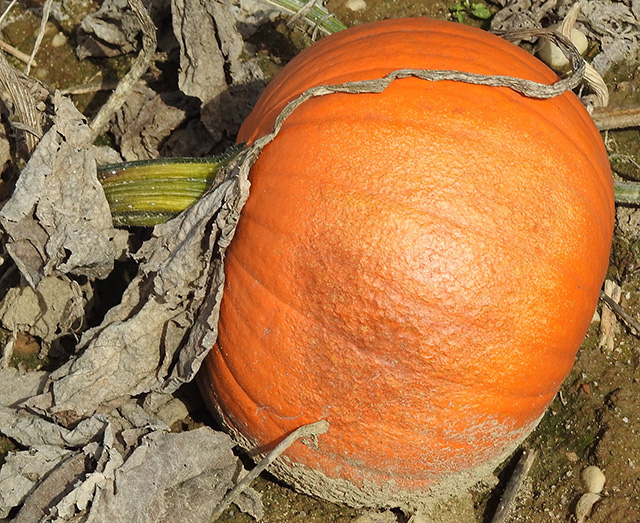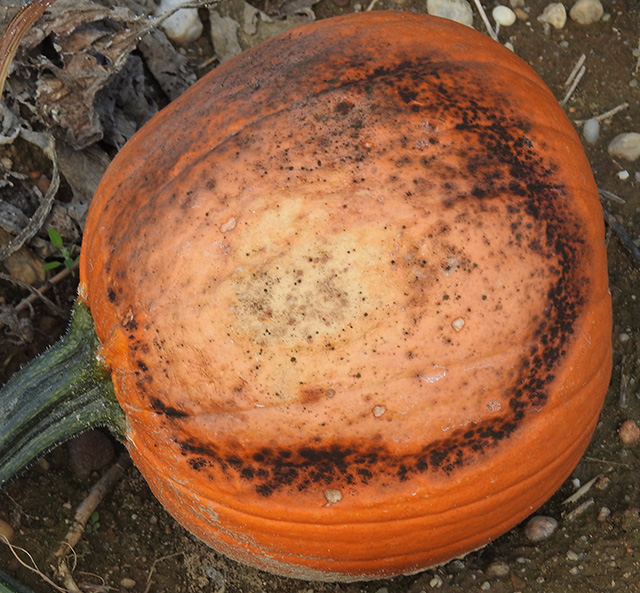Sunscald damage to fruit can occur when exposed to sunlight as a result of loss of leaves. The potential for this to happen increases substantially in the fall because leaves have died and heavy dews common in the fall can exacerbate the problem.
Pumpkin and winter squash fruit are especially prone to sunscald. Affected fruit are seen every year on Long Island in fall.
Sunscald injury starts on the top of fruit, often the part facing the sun during the morning. Initially the rind may appear water-soaked and will slough off when rubbed. Typically a large, round area is affected. Affected tissue develops a bleached appearance. Decay organisms can infect this dead tissue, thus the spot often becomes brown to black with fungal growth before eventually collapsing.
Consider harvesting fruit from production fields with extensive defoliation when clear, bright sunny days are expected combined with clear, cool nights that promote heavy dew formation.











